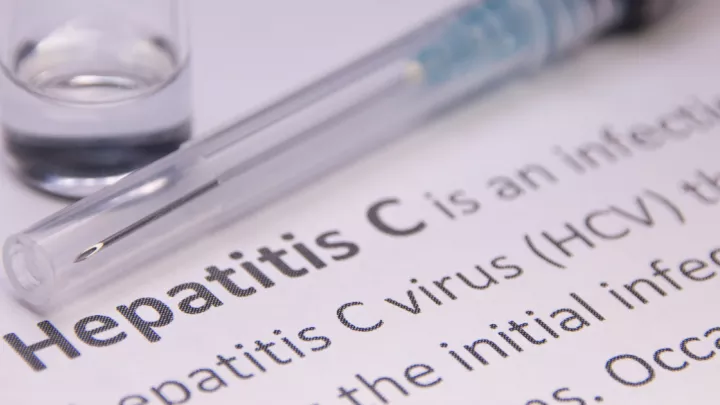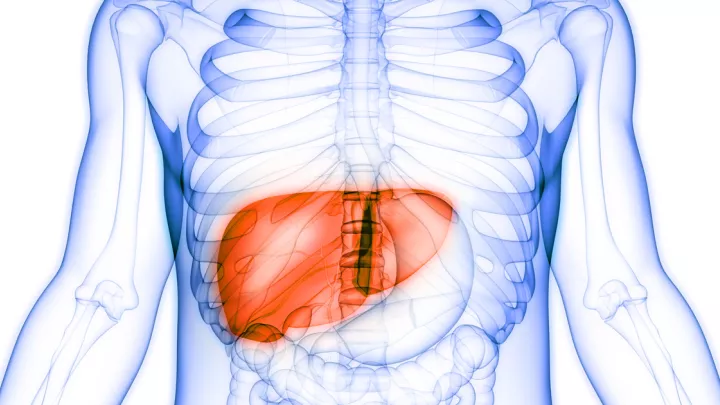What is hepatitis C, and should I be screened?

Hepatitis C is a serious viral infection that, over time, can cause significant liver damage and even liver cancer. It is spread through contact with an infected person’s blood.
“While early treatment can prevent liver damage and even cure the infection, most people with hepatitis C do not know they are infected,” says Marco Olivera-Martinez, MD, Nebraska Medicine gastroenterologist.
That’s because symptoms can take years and even decades to appear. As a result, many people do not seek medical treatment until the disease is fairly advanced.
The transmission of hepatitis C peaked in people born between 1945 and 1965. During that time, the medical community knew little about the virus and how it was transmitted until it was discovered in the 1980s. People born during this period are five times more likely to have the disease.
“Even with greater knowledge about the virus and how it is transmitted, hepatitis C is still fairly common today,” says Dr. Olivera-Martinez.
According to the Centers for Disease Control and Prevention, nearly 5,000 new cases of acute hepatitis C were reported and more than 107,000 new cases of chronic hepatitis C in 2020.
Acute hepatitis C symptoms
The hepatitis C virus starts in what’s called the acute phase. During this phase, up to 70% of people clear the infection from their bodies on their own, says Dr. Olivera-Martinez. Antiviral therapy can also help eliminate the virus during this phase. Typically, there are no symptoms during the acute phase, but when there are symptoms, they may include:
- Jaundice
- Fatigue
- Nausea
- Fever
- Muscles aches
“Unfortunately, most people with hepatitis C have the infection for years before they have symptoms severe enough to seek medical attention,” says Dr. Olivera-Martinez. During this time, the virus can scar and damage the liver, eventually leading to cirrhosis or end-stage liver disease. When symptoms do appear, they are often a sign of severe liver damage. Treatment can help eliminate the virus but cannot reverse the damage.
Symptoms during advanced stages include:
- Bleeding and bruising easily
- Lack of appetite
- Fatigue
- Yellowing of the skin, called jaundice and yellowing of the whites of the eyes
- Dark colored urine
- Itchy skin
- Fluid build-up in the stomach area, called ascites
- Weight loss
- Swelling in the legs
- Confusion, drowsiness and slurred speech
- Spider-like blood vessels on the skin called spider angiomas
Primary causes for the spread of hepatitis C
Sharing of needles through intravenous drug use is the primary source of transmission of this virus, says Dr. Olivera-Martinez. Other common sources include nonsterile tattoo or piercing tools and medical treatment or blood transfusions in countries that don’t screen blood for hepatitis C.
Who should be screened?
The U.S. Preventive Services Task Force recommends that all adults ages 18 to 79 years be screened for hepatitis C, even if they have not engaged in high-risk activities. Screening is especially important for individuals at high risk of exposure, which includes those who have engaged in activities such as injecting, snorting or inhaling illegal drugs, getting a tattoo or piercing from a nonprofessional or if having received a blood transfusion before 1992.
Treatment for hepatitis C
“The key to curing this virus before it damages the liver is to seek early treatment,” Dr. Olivera-Martinez says. Direct antiviral drugs introduced about 10 years ago have a 98% to 99% success rate in curing the infection. The drugs work by preventing the hepatitis C virus from replicating. Once it stops replicating, the virus goes away.
The virus is not contagious unless you are exposed to blood from someone who has the virus. You can also get the virus again after you have been cleared of the infection if you are exposed to it in the future.
“Prevention and screening are essential to eradicate this virus,” says Dr. Olivera-Martinez. “Screening involves a simple blood test.”
Talk to your primary care doctor about getting screened. To schedule an appointment with a primary care doctor, call 800.922.0000







